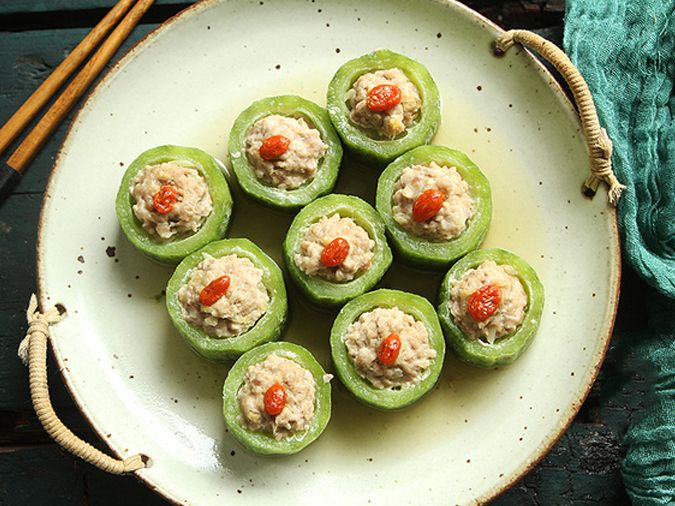Melon, a familiar fruit to the Vietnamese, is often used to create delicious dishes to beat the summer heat. However, melon is more than just a culinary ingredient; it is also considered a precious medicinal herb in traditional medicine. According to Eastern medicine, melon has a sweet taste, a cool nature, and is non-toxic. It offers a range of benefits, including cooling the body, nourishing the blood, detoxifying, eliminating dampness, reducing inflammation, moisturizing the skin, and regulating the meridians. It is commonly used to treat skin conditions such as rashes, itching, and boils, as well as respiratory and urinary tract infections caused by damp heat.
From the perspective of modern medicine, melon has a high nutritional value and provides numerous health benefits.
Effective Blood Sugar Control
Melon contains a significant amount of manganese, which is essential for the body’s production of insulin, helping to prevent and control blood sugar levels effectively. Additionally, the fiber in sweet melon increases insulin sensitivity, contributing to diabetes management. Therefore, diabetics should regularly include melon in their diets.
Despite its sweet taste, melon has a very low glycemic index. So, if you’re wondering if diabetics can eat melon, the answer is yes. Melon not only has a low sugar content but is also rich in fiber, which helps you feel full for longer, prevents constipation, and slows down the release of sugar into the bloodstream. Hence, consuming melon is entirely safe for diabetic patients. Diabetics can incorporate melon into their daily diets in various cooked or raw forms.

Despite its Sweet Taste, Melon Has a Very Low Glycemic Index
Preventing Anemia
Vitamin B6 plays a crucial role in producing hemoglobin, which is necessary for carrying oxygen to cells and facilitating iron absorption. When the body becomes anemic, there are not enough red blood cells to perform this function, leading to symptoms such as pain, fatigue, and discomfort.
Research has shown that proper supplementation of Vitamin B6, through foods like melon, can help alleviate anemia symptoms and prevent this condition. Therefore, a diet rich in Vitamin B6 is essential for those at risk of anemia.
Beneficial for Cardiovascular Health
Melon is an excellent source of fiber, and according to the American Heart Association, fiber plays a vital role in lowering cholesterol levels and promoting cardiovascular health.
Additionally, melon contains vitamin B5, a nutrient capable of reducing levels of harmful cholesterol and triglycerides, thereby decreasing the risk of cardiovascular disease. Including melon in your daily diet can offer multiple benefits for your cardiovascular health.

Melon Is an Excellent Source of Fiber
Preventing Muscle Pain
Potassium is essential for maintaining fluid balance and relaxing muscles. A deficiency in potassium can lead to symptoms such as cramps, spasms, and muscle aches. Potassium also supports the breakdown of proteins and carbohydrates, providing energy and aiding in muscle recovery.
With 453 mg of potassium in every 100g of melon, regularly including melon in your diet will help maintain optimal potassium levels and prevent issues related to muscle pain.
Laxative Effect
Melon has long been known for its natural laxative properties, helping to relieve constipation. This food not only aids digestion but can also be used as a treatment for constipation-related issues, providing comfort and improving gut health.
Reducing Wrinkles
Several studies have shown that adequate vitamin C intake provides multiple benefits for skin health. Vitamin C can minimize dry skin, reduce wrinkles, and prevent premature aging.
The abundant vitamin C content in melon not only aids in producing the protein necessary for building muscles, skin, blood vessels, and ligaments but also supports the quick healing of wounds.
Preventing Eye Diseases
Melon is rich in vitamins A, C, and E, all of which are essential for eye health and help prevent issues such as age-related macular degeneration.
A study by the National Eye Institute found that people who supplemented their diets with vitamins C, A, copper, E, and zinc reduced their risk of developing advanced age-related macular degeneration by 25% over six years. Additionally, the study showed that vitamin A eye drops were effective in treating dry eyes. Including vitamin A-rich foods like melon in your daily diet can also help lower the risk of eye diseases.

Melon Is Rich in Vitamins A, C, and E, All Essential for Eye Health
Foods to Avoid Combining with Melon
Loach
Melon is rich in vitamin B1, while loach contains an enzyme that breaks down this vitamin. When consumed together, the enzyme in loach destroys the vitamin B1 in melon, reducing its nutritional value for the body.
Spinach
Both spinach and melon have cooling properties and are high in fiber. When eaten together, they can increase intestinal motility, leading to digestive disorders, abdominal pain, or diarrhea. Additionally, spinach contains oxalic acid, and melon is rich in calcium. When oxalic acid combines with calcium, it forms calcium oxalate, reducing the body’s ability to absorb calcium.
Turnip
Both turnip and melon have cooling properties. Consuming them together can cause stomach discomfort and pain.






























